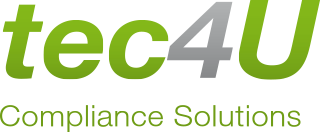Material compliance refers to adherence to legal and normative requirements regarding the ingredients, manufacture and disposal of materials and products. Companies must ensure that their products comply with international regulations such as REACH, RoHS, SCIP database, conflict minerals regulations and other environmental and chemical directives.
Our consulting services in the area of material compliance cover the following topics:
- Analysis & evaluation of material conformity
- Checking compliance with legal requirements (e.g. REACH, RoHS)
- Risk analysis and gap analysis of existing processes
- Strategy consulting & implementation
- Development and implementation of compliance strategies
- Development of a sustainable compliance management system
- Data management & documentation
- Support in recording and managing material data
- Preparation of declarations of conformity and reports
- SCIP database & reporting obligations
- Advice on compliance with the reporting obligations for the SCIP database
- Support with data preparation and transmission
- Supply chain management & due diligence
- Evaluation of suppliers with regard to material compliance
- Advice on compliance with conflict minerals requirements
- Training & workshops
- Training for employees on current regulations
- Workshops on the practical implementation of material compliance requirements

For its excellent consulting services in the field of material compliance, tec4U-Solutions received the award for Best International Material Compliance Consulting Company at the German Business Award 2022.
Our support services help companies to minimize legal risks, avoid penalties and develop, implement and successfully maintain a sustainable product strategy.
In our view, the decisive factors that speak in favor of the consistent implementation of material compliance requirements and regulations can be broken down as follows:
Risk minimization & liability protection
Companies that neglect material compliance risk not only legal consequences but also possible financial losses, as they could be liable for non-compliant products.
Protection of the environment and health
Material compliance helps to reduce hazardous substances, protect the environment and ensure the health of consumers and workers.
Securing the supply chain & market access
Many customers require proof of material compliance in order to meet legal requirements and sustainability targets. Material compliance enables companies to sell their products worldwide without fear of regulatory hurdles.
Competitive advantage & sustainable corporate strategy
Companies that proactively focus on material compliance can position themselves as responsible and sustainable market participants. This strengthens the trust of customers, investors and business partners.
